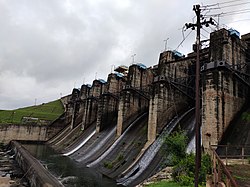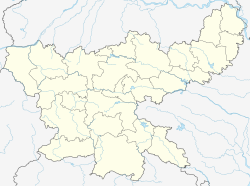
Angara block is an administrative CD block in the Ranchi Sadar subdivision of Ranchi district in the Indian state of Jharkhand.
Burmu block is a community development block in the Ranchi Sadar subdivision of Ranchi district in the Indian state of Jharkhand.
Bero block is an administrative division in the Ranchi Sadar subdivision of Ranchi district, Jharkhand state, India.

Kanke block is a community development block in the Ranchi Sadar subdivision of Ranchi district, Jharkhand, India.
Chanho block is a community development block in the Ranchi Sadar subdivision of Ranchi district in the Indian state of Jharkhand.
Lapung is a community development block in the Ranchi Sadar subdivision of Ranchi district, in the Indian state of Jharkhand.
Mandar(mandar) is a community development block in the Ranchi Sadar subdivision of Ranchi district, in the Indian state of Jharkhand.

Silli is a CD block that forms an administrative subdistrict in the Ranchi Sadar subdivision of Ranchi district, in the Indian state of Jharkhand.
Sonahatu block is a CD block that forms an administrative division in the Bundu subdivision of Ranchi district, in the Indian state of Jharkhand.
Tamar block is a CD block that forms an administrative division in the Bundu subdivision of Ranchi district, in the Indian state of Jharkhand.
Ormanjhi is a village in the Ormanjhi CD block in the Ranchi Sadar subdivision of Ranchi district, Jharkhand, India.
Namkum is a community development block forming an administrative division in the Ranchi Sadar subdivision of Ranchi district in the state of Jharkhand.
Patratu (community development block) is an administrative division in the Ramgarh subdivision of the Ramgarh district in the Indian state of Jharkhand.
Mandu (community development block) is an administrative division in the Ramgarh subdivision of the Ramgarh district in the Indian state of Jharkhand.
Ramgarh (community development block) is an administrative division in the Ramgarh subdivision of the Ramgarh district in the Indian state of Jharkhand.
Dulmi (community development block) is an administrative division in the Ramgarh subdivision of the Ramgarh district in the Indian state of Jharkhand.
Chitarpur (community development block) is an administrative division in the Ramgarh subdivision of the Ramgarh district in the Indian state of Jharkhand.
Gola (community development block) is an administrative division in the Ramgarh subdivision of the Ramgarh district in the Indian state of Jharkhand.
Khelari is a community development block that forms an administrative division in the Ranchi Sadar subdivision of the Ranchi district, Jharkhand state, India.
Rahe is a community development block that forms an administrative division in the Bundu subdivision of the Ranchi district, Jharkhand state, India.





